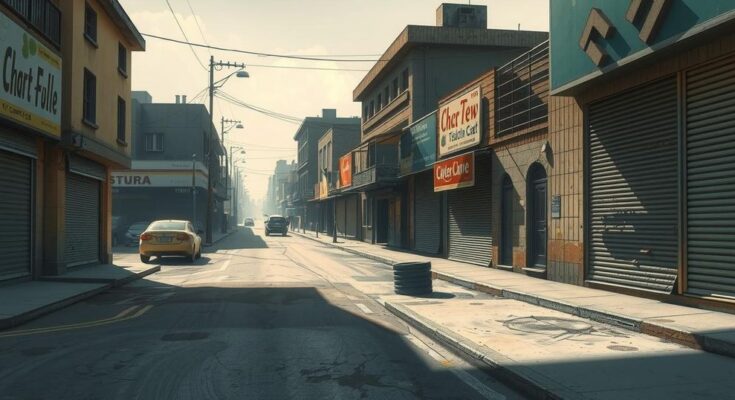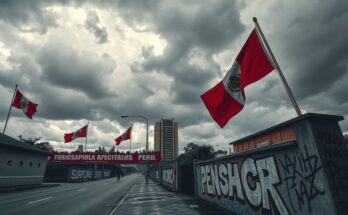In March 2025, Zimbabweans largely abstained from a proposed stay away from work termed by activist Blessed Geza, citing safety concerns. Political analyst Eldred Masunungure attributed this to the rational fears of citizens facing state repression and criticized the absence of a cohesive political organization. He called for a revival of the Government of National Unity to address systemic instability, though doubts remain over its feasibility.
As of late March 2025, Zimbabweans observed a significant stay away from work, transforming urban centers into virtual ghost towns. Political analyst Eldred Masunungure from the University of Zimbabwe provided insight on the situation. He stated that citizens did not heed Blessed ‘Bombshell’ Geza’s call for protests against President Emmerson Mnangagwa, largely due to concerns over the risks involved in confronting state power. “People are rational enough to know the dangers inherent in confronting the coercive arms of the state,” Masunungure noted.
Following Geza’s announcement for an indefinite stay away, many opted to ignore it, citing its impracticality due to the everyday survival needs of many Zimbabweans who rely on informal work. Essentially, taking part in such a protest would pose significant risk, as Masunungure explained, “Participating in an indefinite stay-away is suicidal, hence they defied the call. It is plain common sense.”
He further emphasized another critical aspect related to the failure of the stay away, which is the absence of a united organizational structure. Masunungure remarked that the ‘Geza movement’ appears to be largely a solo endeavor, a strategy not tenable in politics. He pointed out the lack of a political home for those not wanting to align with Zanu PF, highlighting a significant gap left in Zimbabwe’s political landscape.
After years of political turmoil, Masunungure described many citizens as political orphans, particularly following the decline of opposition parties like the Movement for Democratic Change and the Citizens Coalition for Change. He said, “The tragedy of Zimbabwe’s opposition politics today, the lack of a viable and trusted organizational vehicle to accommodate the multitudes of political orphans.”
Masunungure proposed that Zimbabwe must recreate the Government of National Unity (GNU) that functioned between 2009 and 2013 to regain stability. However, he expressed doubts about this occurring under the current regime, which he characterized as effectively a one-party state and where alternative political voices, including civil societies, face suppression through legal and extralegal methods.
Adding to his reflections, he cited opposing forces such as the PVO Amendment Act and external pressures on civil society, attributing these to the government’s efforts to diminish opposition power. Masunungure remains hopeful that leadership from progressive church groups might spur dialogue that could revive a GNU-like solution, although he notes this would necessitate regional support, especially from SADC’s leadership. Ultimately, he conveyed a sobering outlook: “The bottom line though is that Zimbabwe is likely to be in this state of uncertainty, confusion, and even chaos for the foreseeable future.”
In summary, the current political climate in Zimbabwe reveals significant challenges for civil society and political organization. As Eldred Masunungure highlighted, a desperate need exists for a viable political structure to include those feeling politically abandoned. Without this, the ongoing instability seems set to persist. The returning memories of the GNU reflect a yearning for a time of relative unity, though the pathway to reclaiming that appears murky amid a one-party regime and systemic uncertainty.
Original Source: www.newzimbabwe.com




